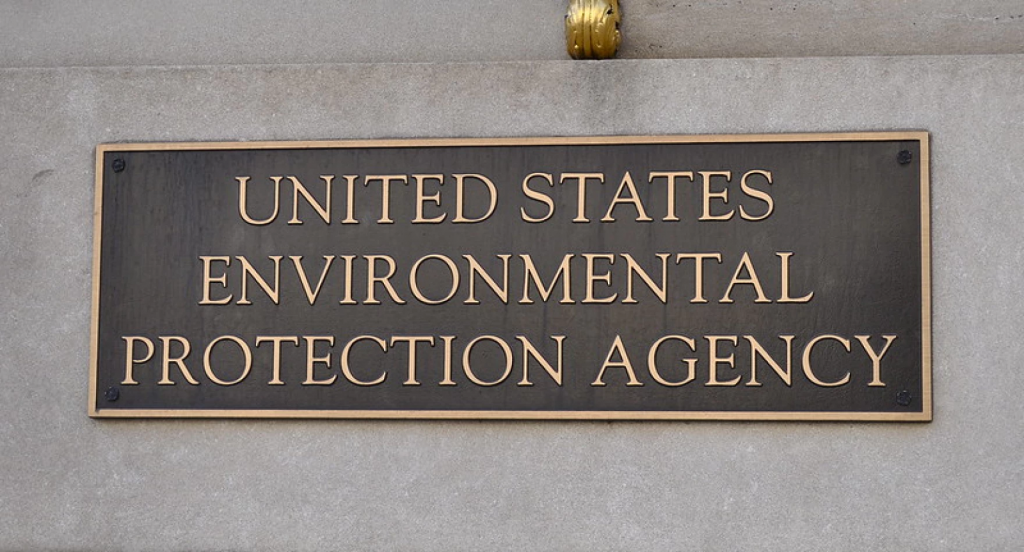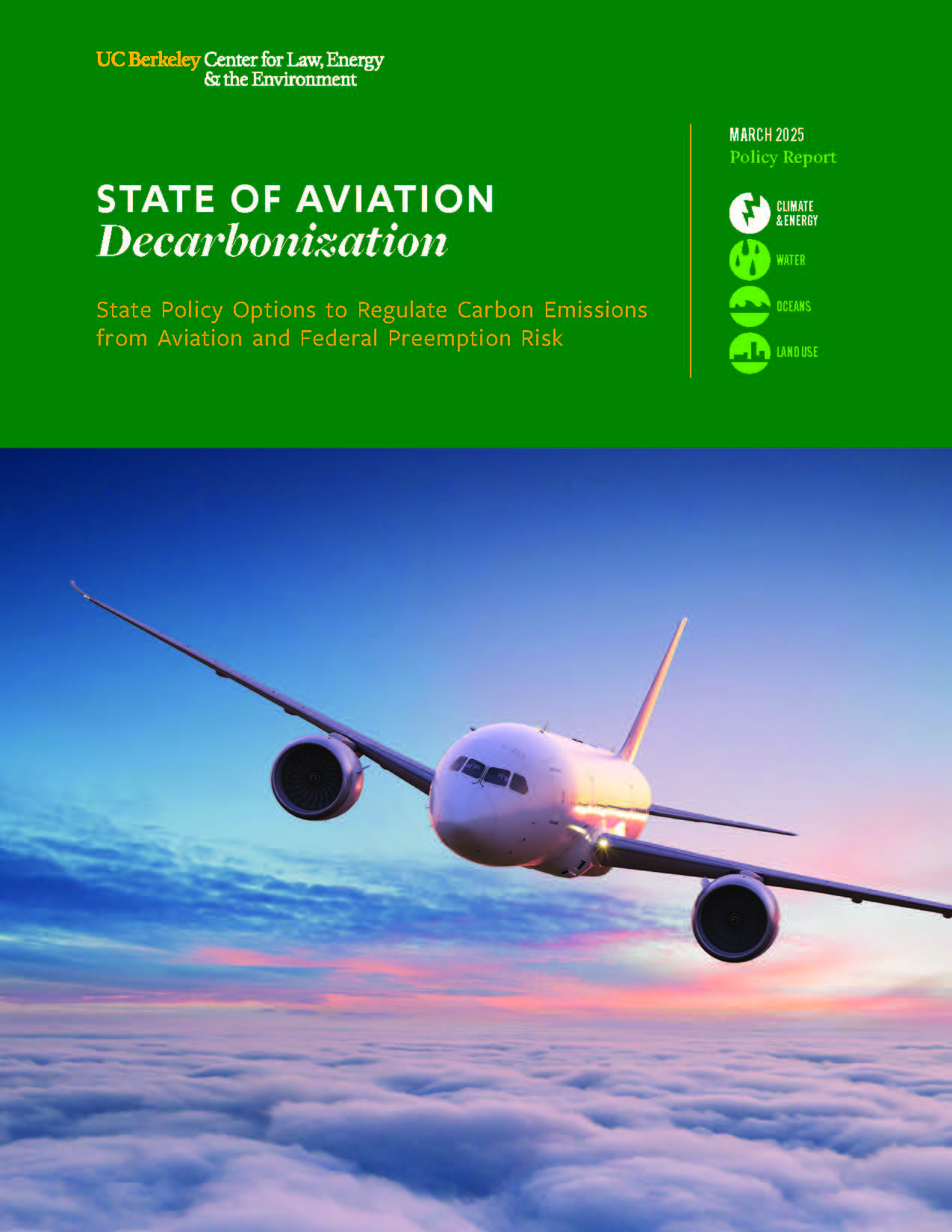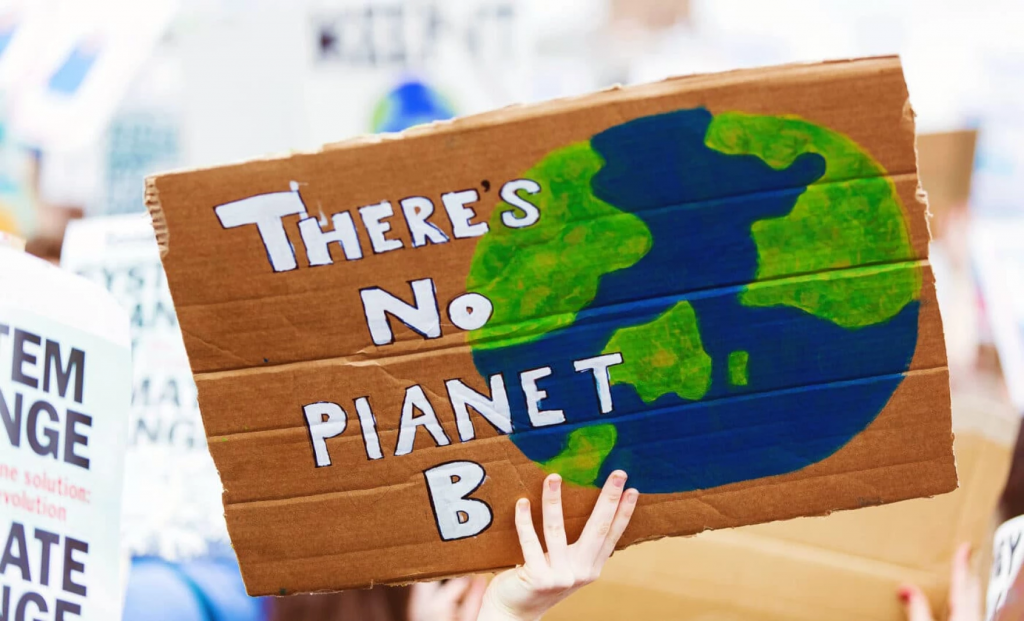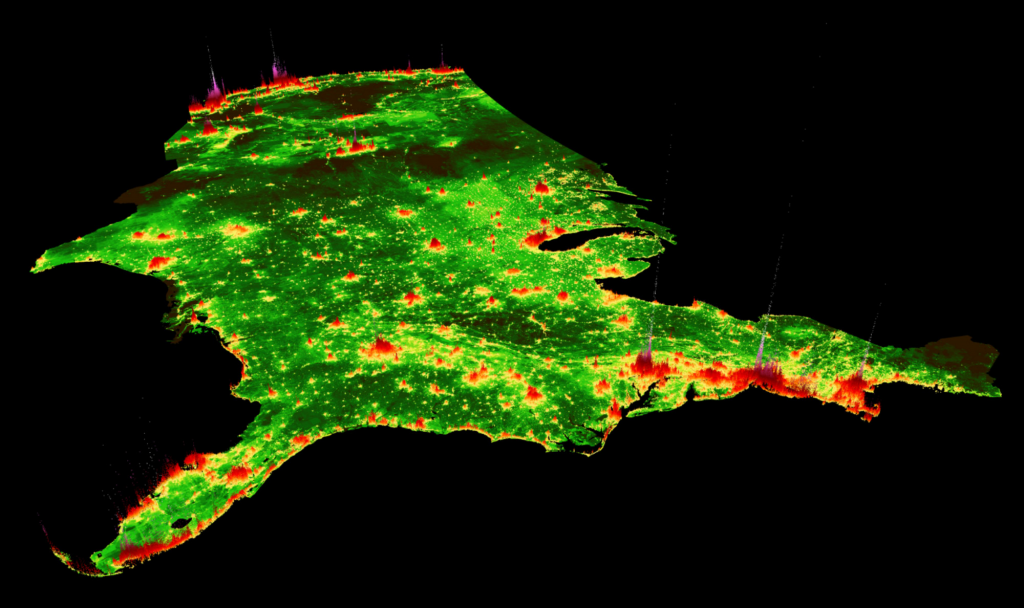
I’m double hosting today on KALW. First, on Your Call’s One Planet series at 10am PT, we’ll dig into what’s been a tumultuous few months for the electric vehicle industry. Between Trump’s threats to defund EVs, fluctuating tariffs, and Elon Musk advising the White House, what’s the future looking like? John Voelcker, contributing editor at Car and Driver, will join us.
Then we’ll hear about proposed cuts to the National Oceanic and Atmospheric Administration that could drastically reduce data about ocean temperature and health. Joining us will be Bob Berwyn, reporter for Inside Climate.
Then on State of the Bay at 6pm PT, we’ll break down the plan for the first 100 days for former Congresswoman and now Oakland’s mayor-elect Barbara Lee. Joining us will be Shomik Mukherjee of East Bay Times.
Plus, the Trump administration is once again targeting California’s climate policies with a sweeping executive order that could derail the state’s environmental goals. We’ll discuss the legal and political battles ahead with Blanca Begert, California climate and energy reporter at Politico; Yana Garcia, California Secretary for Environmental Protection; and Michael Wall, chief litigation officer at Natural Resources Defense Council.
And finally we’ll take a deep dive into the muscles that move us. Author Bonnie Tsui shares insights from her book “On Muscle: The Stuff That Moves Us and Why It Matters.”
Tune in at 91.7 FM in the San Francisco Bay Area or stream live at 10am PT for Your Call and then again at 6pm PT for State of the Bay. What comments or questions do you have for our guests? Call 866-798-TALK to join the conversation!

I’ll be on KQED Forum today at 9am PT talking about Trump’s sweeping executive order taking aim at efforts by states, including California, to set their own environmental policies. At risk are key components of California’s fight against climate change, including its cap-and-trade program to control carbon emissions and efforts to promote electrical vehicles.
Trump’s order is just the latest in his moves to reverse climate change policies, including halting government research funding and gutting environmental agencies. As his head of the Environmental Protection Agency Lee Zeldin has said, the administration is “driving a dagger straight into the heart of the climate change religion.” We’ll talk about the impact of Trump’s approach to the environment and how California could respond.
I’ll be joined on the panel with:
- Sonia Aggarwal, CEO, Energy Innovation – a non partisan think tank based in San Francisco that provides research and analysis on energy and climate policy; special assistant, to the President for Climate Policy, Innovation, and Deployment in the Biden administration.
- Lisa Friedman, reporter on the climate desk, New York Times
- Abigail Dillen, president, Earthjustice – a public interest law group focused on the environment
Hope you can tune in on KQED or stream live at 9am PT!

On today’s Your Call One Planet Series, we discuss Water for Life, a documentary film that tells the story of three Indigenous activists in Central and South America as they fight to protect their ancestral lands and water rights.
The film follows Alberto Curamil, a Mapuche chief in Chile, Francisco Pineda, a corn-grower in El Salvador, and the late Berta Cáceres of the Lenca in Honduras, as they face jail and murder while leading movements to safeguard their drinking and irrigation water from multinational corporations and corrupt governments.
Joining us will be:
- Will Parrinello, award-winning documentary filmmaker and director of Water for Life
- Rick Tejada-Flores, documentary filmmaker and co- producer of Water for Life
- Maria Jose Calderon, award-winning documentary producer, editor, and co-producer of Water for life
Then we discuss a recent executive order that that aims to stop the enforcement of state climate laws and policies. According to CalMatters, Trump’s executive order directs US Attorney General Pam Bondi to identify state and local acts that may be unconstitutional or preempted by federal law. Within 60 days, the attorney general must report back with findings and recommendations for action.
Trump’s order singles out California’s cap and trade program, a market-based system created in 2012 that is considered one of the state’s key policies for combating climate change. The program sets limits on greenhouse gas emissions and allows companies to buy and sell credits. Twelve other states have similar programs for cutting greenhouse gases.
To help us unpack what’s at stake, we’ll be joined by Ken Alex, director of Project Climate at UC Berkeley’s Center for Law, Energy, and Environment.
Tune in at 91.7 FM in the San Francisco Bay Area or stream live at 10am PT. What comments or questions do you have for our guests? Call 866-798-TALK to join the conversation!

I’ll be double-hosting on KALW today. First, on Your Call’s One Planet Series at 10am PT, we discuss the Trump administration’s attack on environmental protections.
Donald Trump’s EPA chief, Lee Zeldin, plans to roll back more than two dozen regulations that protect our health, air, water, and climate, eliminate the Office of Research and Development, and fire hundreds of scientists. Joining us to discuss will be:
- Ken Alex, director of Project Climate at UC Berkeley’s Center for Law, Energy, & Environment
- Marianne Lavelle, award-winning reporter for Inside Climate News
Later in the program, we’ll examine the Trump administration’s decision to drop a landmark environmental justice case in Louisiana’s cancer alley, with Robert Taylor, executive director of Concerned Citizens for St. John.
Then at 6pm PT, I’ll be hosting State of the Bay. First, we’ll talk to San Francisco Mayor Daniel Lurie about his new plan on homelessness.
Then we’ll talk about the suffering endured by millions of people due to Long Covid, with Dr. Linda Geng, co-director of the Stanford Long Covid Collaborative, and Philip Hoover, a screenwriter and North Bay resident who has firsthand experience navigating life with Long COVID.
Finally, we’ll talk to Ramon Ramos Alayo of the dance festival CubaCaribe.
Tune in at 91.7 FM in the San Francisco Bay Area or stream live at 10am PT for Your Call and then again at 6pm PT for State of the Bay. What comments or questions do you have for our guests? Call 866-798-TALK to join the conversation!

Aviation is a significant and growing source of greenhouse gas emissions. But the federal government in the United States has failed to address it so far. In response, some state policy makers and advocates are now considering legal avenues to effectively require the use of sustainable aviation fuels, which emit less carbon than traditional jet fuel when burned — and in some cases can eliminate these emissions altogether.
Opponents will undoubtedly argue that such state-based initiatives conflict with federal law. A new report from UC Berkeley Law’s Center for Law, Energy and the Environment (CLEE), State of Aviation Decarbonization: State Policy Options to Regulate Carbon Emissions from Aviation and Federal Preemption Risk, provides an in-depth analysis of these legal issues with respect to three potential state policy approaches:
- regulation via a low carbon or clean fuel standard, which creates a carbon intensity target for all fuels – including aviation – with low-carbon fuels that fall below the threshold generating credits that can be sold, while those above the benchmark create deficits;
- state and local plans that implement the federal Clean Air Act; specifically, indirect source rules on airports that would require reduction of co-pollutants from airport mobile sources, including aircraft emissions due to burning high-carbon fuels; and
- state authority to tax and impose fees on high-carbon aviation fuel, in order to discourage their consumption and instead provide revenue that can fund use and deployment of lower-carbon alternatives.
The report ultimately concludes that a low carbon fuel standard regulation would provide the greatest potential impact on sustainable aviation but entails the most legal risk among the three approaches, while increased taxation or fees on high-carbon jet fuel could have a potentially significant impact on sustainable aviation fuel if revenues support deployment of low-carbon alternatives, with a moderate risk of federal preemption.
Overall, State of Aviation Decarbonization finds that well-designed state initiatives have a good chance of surviving legal challenges, and it offers strategies to reduce the likelihood of successful challenges.
Download the report here.

On today’s Your Call’s One Planet Series, we’ll discuss the importance of environmental journalism with:
- Mark Hertsgaard, executive director of Covering Climate Now, environment correspondent for The Nation, and author of Big Red’s Mercy: The Shooting of Deborah Cotton and A Story of Race in America.
- Sammy Roth, climate columnist for the Los Angeles Times and author of the paper’s Boiling Point newsletter
How should journalists cover the Trump administration’s moves to stop climate action?
Tune in at 91.7 FM in the San Francisco Bay Area or stream live at 10am PT. What comments or questions do you have for our guests? Call 866-798-TALK to join the conversation!

Double shot of KALW for me today! First, on Your Call’s One Planet Series at 10am: how will the rising cost of home insurance, driven by worsening climate disasters, push up the costs of owning a home? In some cases, insurance companies are pulling out of towns altogether. And in others, people are beginning to move away. Abrahm Lustgarten, an investigative reporter at ProPublica and The New York Times, will discuss these trends.
Later in the show, we’ll examine the Trump administration’s efforts to dismantle the Environmental Protection Agency with Marianne Lavelle, an award winning reporter for the Pulitzer Prize-winning, non-profit, news organization Inside Climate News. According to Inside Climate News, employees tasked with overseeing environmental justice initiatives at the Environmental Protection Agency could be placed on immediate administrative leave, leaving them in limbo.
Then at 6pm PT, I’m hosting State of the Bay, where we’ll talk to UCSF doctors and scientists about the impact of uncertain federal funding on our public health and on the cutting edge research happening here in the Bay. Guests include Dr. Peter Chin-Hong, infectious disease doctor at UCSF, and Pamela Munster, Professor in the Department of Medicine in Hematology/Oncology at UCSF.
We’ll also discuss how the Rose Pak Democratic Club recently ended its affiliation with the Democratic Party. Joining us will be Jeremy Lee, President of the Rose Pak Democratic Club, and Ko Lyn Cheang, Asian American and Pacific Islander reporter for the San Francisco Chronicle.
And finally, we’ll hear from the director of the new film Underdogs, about how the human-dog bond transforms incarcerated people.
Tune in at 91.7 FM in the San Francisco Bay Area or stream live at 10am PT for Your Call and then again at 6pm PT for State of the Bay. What comments or questions do you have for our guests? Call 866-798-TALK to join the conversation!

On today’s Your Call Media Roundtable, we’ll discuss a recent investigation about how a deceptive PR strategy pioneered in 1950s California first exposed the risk of climate change and then helped the industry deny it. Joining us will be Rebecca John, investigative climate journalist and research Fellow at the Climate Investigations Center.
We also talk about the news media coverage of the devastating LA fires, and the fossil fuel industry’s efforts in California to kill a bill that would have forced major fossil fuel companies to contribute to a fund, which would pay for climate disasters. Aaron Cantu, award-winning investigative journalist covering gas and oil in California for the Capital & Main, will describe the details.
Tune in at 91.7 FM in the San Francisco Bay Area or stream live at 10am PT. What comments or questions do you have for our guests? Call 866-798-TALK to join the conversation!

Tonight on State of the Bay, we’ll hear from CLEE’s Louise Bedsworth and Isabel Rewick, both of whom took part in this year’s United Nations climate conference in Baku, Azerbaijan.
AND we interview Assemblymember Damon Connolly, San Francisco City Attorney David Chiu, and Senator Scott Wiener about how new Trump administration policies might impact life here in the Bay Area.
PLUS, we’ll get advice from Luisa Smith of Book Passage on the perfect gift for the booklover on your holiday list.
Tune in at 91.7 FM in the San Francisco Bay Area or stream live tonight at 6pm PT. What comments or questions do you have for our guests? Call 866-798-TALK to join the conversation!
Trump is promising to roll back the $7500 tax credit for electric vehicles. CBS News covered the story last night, where I talked about the potential impact:


